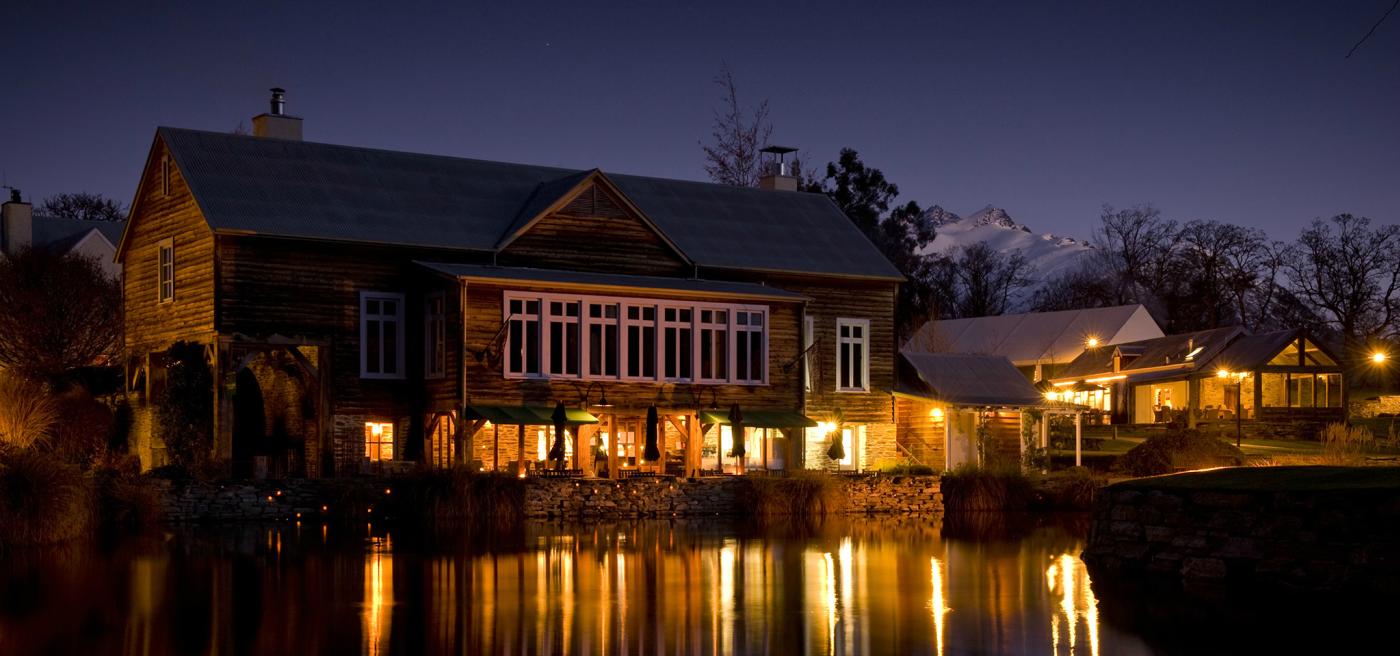Visit the Lakes District Museum
Explore the 1862 gold rush stories taking you back in time at the Lakes District Museum. You'll find everything you need to know about the development of Arrowtown and the wider Queenstown area, with old streetscapes, a school room, artifacts, archives and a range of historic books. The museum complex is built around the original bank’s stables and a brick baker’s oven, dating back to 1875.
Great for the whole family, you can find out more about the museum here.
Be wowed by the original European Miners' Cottages
The quaint old miners' cottages are some of over 70 historically listed buildings, features and trees in Arrowtown, and date back to the 1860s. The cottages and buildings in the historic Buckingham Street precinct represent the original core of economic activity within the town.
The European Miners' Cottages have been recognised as Tohu Whenua. Tohu Whenua are the places that have shaped Aotearoa New Zealand. Located in stunning landscapes and rich with stories, they offer some of New Zealand's best heritage experiences.

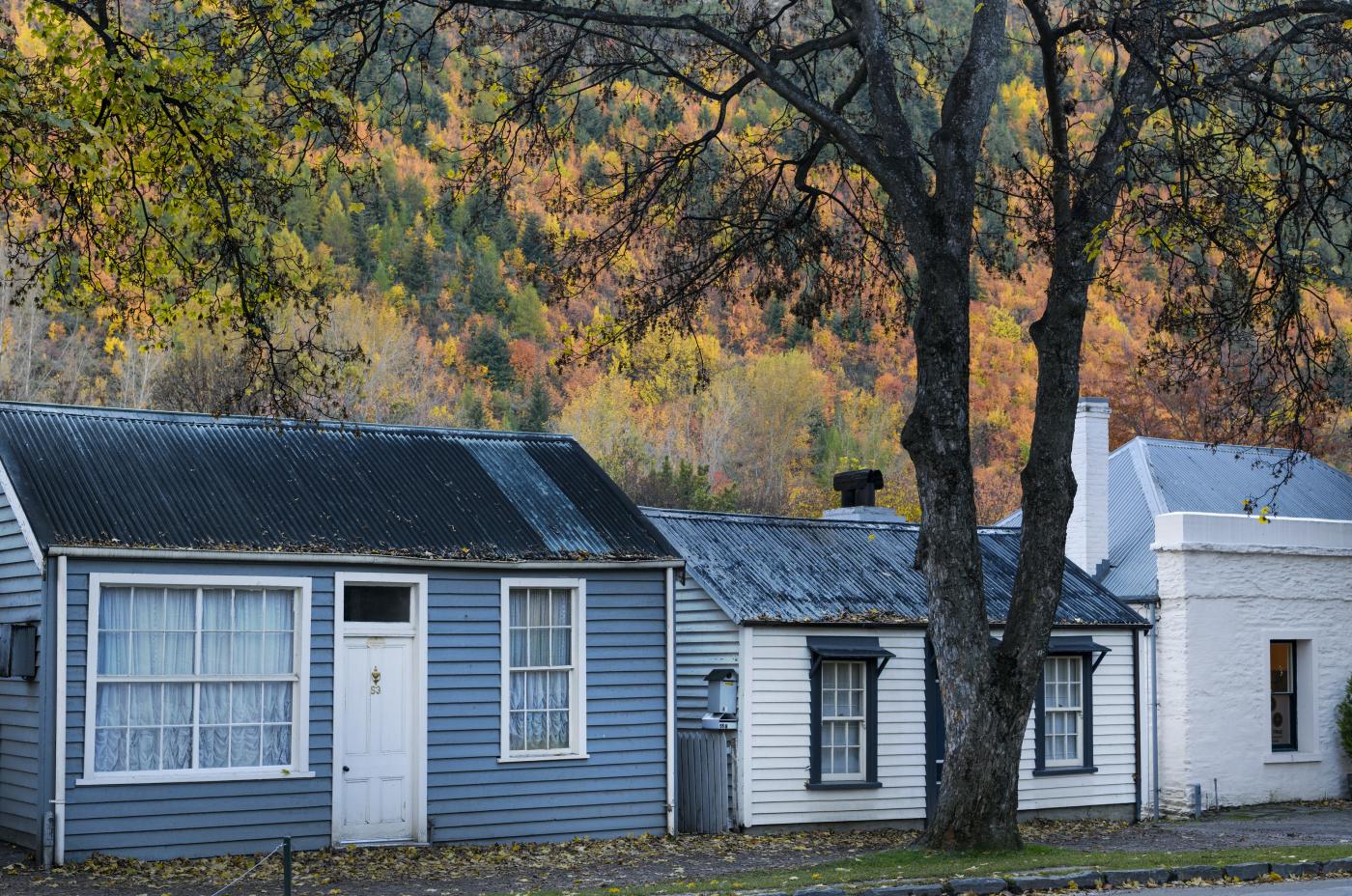
Arrowtown's European miners' cottages
Take an easy walk to the Chinese Settlement
Another Tohu Whenua in Arrowtown, the old Chinese Miners' Village is just 2 minutes’ walk from the main street. Chinese gold miners flocked to Arrowtown from 1869 and were allocated an area to set up their own village with modest stores, market gardens and huts, separate from the European miners' town. The restored huts and Ah Lum's store remain, encapsulating some of the hardship and living conditions of the ‘other half’ in the gold mining days.
It takes 15 to 30 minutes to explore the huts and learn about how the early Chinese miners lived beside the river.

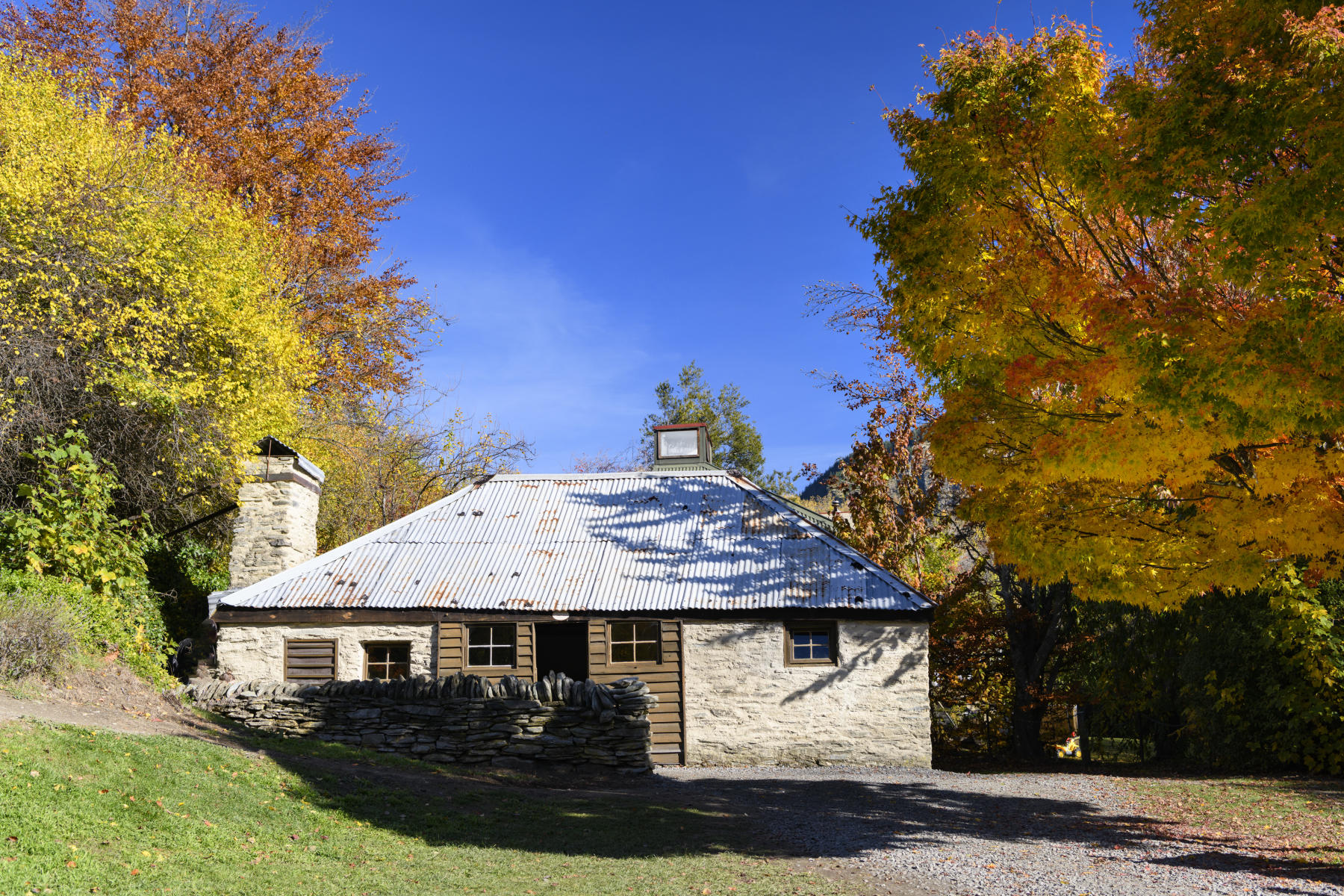
Historical Chinese village, Arrowtown
Browse along the Arrowtown Heritage Town Centre Walk
This self-guided walk passes old-time commercial buildings, starting at the quaint miners’ cottages precinct and finishing at the Chinese Settlement. Allow a couple of hours as you'll be tempted by the boutique shopping and cafes on the way, with several historic buildings now housing places to eat and drink.
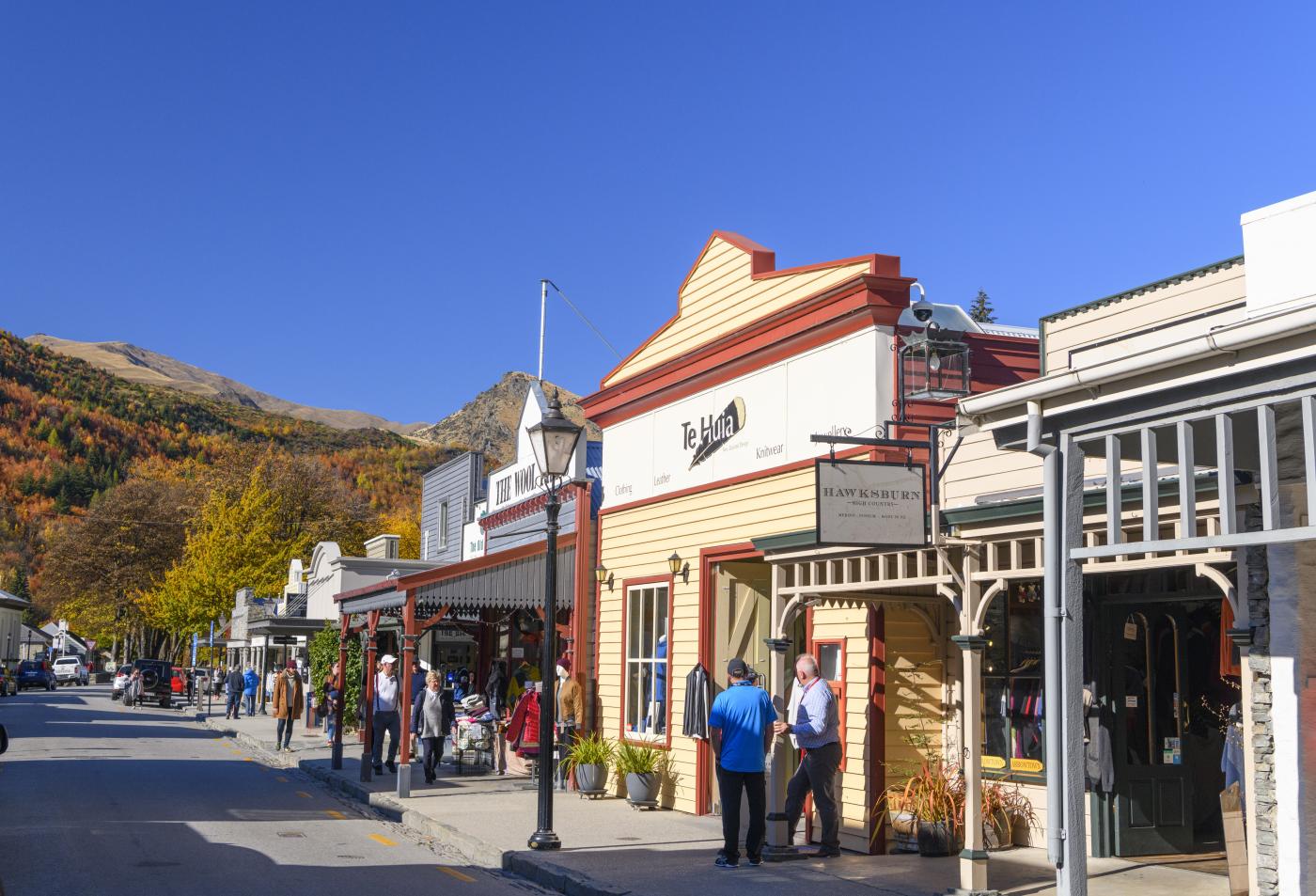
Buckingham Street, Arrowtown
Imagine being locked up in the gold days!
Explore the old gaol and reserve in Cardigan Street, located just two minutes from the museum. The solid stone gaol was built in 1876 and was used until 1987.
Interestingly, prior to the stone gaol the Arrowtown gaol was simply a log to which offenders were chained. Head to the Arrowtown Museum for more information on the old gaol.
Look up to the avenue of trees
The Mary Cotter tree is a tree named for 2 year old Mary Cotter who danced around the sapling at the suggestion of the workmen planting the trees in 1867.
The famous tree is one of an avenue of English trees planted in 1867 all of which are renowned for autumn colours in April each year.
Walk, ride, or 4WD into Macetown
Explore the nearby gold rush ghost town Macetown and the mining relics that remain, located a 6 hour return walk or bike ride on a rough but beautiful road with many river crossings along the Arrow River.
The trip is just one of more adventurous rides and walks in the region and is part of the national Te Araroa Trail.
If you don't have the time to walk the track, 4WD operators offer guided tours into Macetown, detailing the history of the region along the way.

Nomad Safaris 4WD tour into Macetown
Walk in the steps of a Saint
Located on the St Patrick’s Catholic Church grounds in Hertford Street, just a stones-throw from Arrowtown's town centre, you'll find the Mary MacKillop Cottage.
The small yellow cottage was originally built as a miner's house around 1870 and in 1897 Sister Mary MacKillop converted the cottage into a convent for the Sisters of St Joseph of the Sacred Heart who worked in New Zealand and Australia.
Mary MacKillop is Australasia’s only Saint. She founded the Sisters of St Joseph of the Sacred Heart, a congregation of religious sisters that established a number of schools and welfare institutions throughout Australia and New Zealand, with an emphasis on education for the rural poor.
Experience the magic of Arrowtown at night
Arrowtown lights up at night with beautifully lit heritage cottages, historic trees shop façades and stone walls showcasing the character of the town.
This newly completed heritage lighting project lights up historic features and reveals the charm of the town at night.
Self-guide Millbrook Resort’s history
Millbrook isn’t just a luxury lifestyle resort set in a beautiful golf course… it has a diverse history dating from its wheat and sheep farm to the gorgeous resort standing today.
The land that Millbrook Resort sits on today was once a 450 acre wheat farm, established by brothers Peter and John Butel to feed Arrowtown's hungry miners. The brothers built a flour mill on the farm and also ran a sawmill at the bottom of Coronet Peak.
Visitors at Millbrook are welcome to try two historic self-guided walking tours around the resort and learn more about this interesting history.
The Millhouse, Millbrook Resort
Bike from Arrowtown to the Kawarau Bridge in Gibbston
The Arrow River Bridges Trail is an easy 8.7km by bike, suitable for families with kids or for beginners. Part of the Queenstown Trail network, the trail starts in Arrowtown are crosses five bridges on the Arrow River on its way to Gibbston.
Upon reaching Gibbston, you'll ride over the stunning Kawarau Bridge, a historic suspension bridge built in 1882. The bridge was an engineering marvel when it was built and in the 1980s, the bridge became the site of the world's first commercial bungy jumping operation. This significant history has lead to the bridge being recognised as Tohu Whenua.
Once in Gibbston, you can continue onto the Gibbston River Trail which allows you to access a number of the famous wineries in the valley.

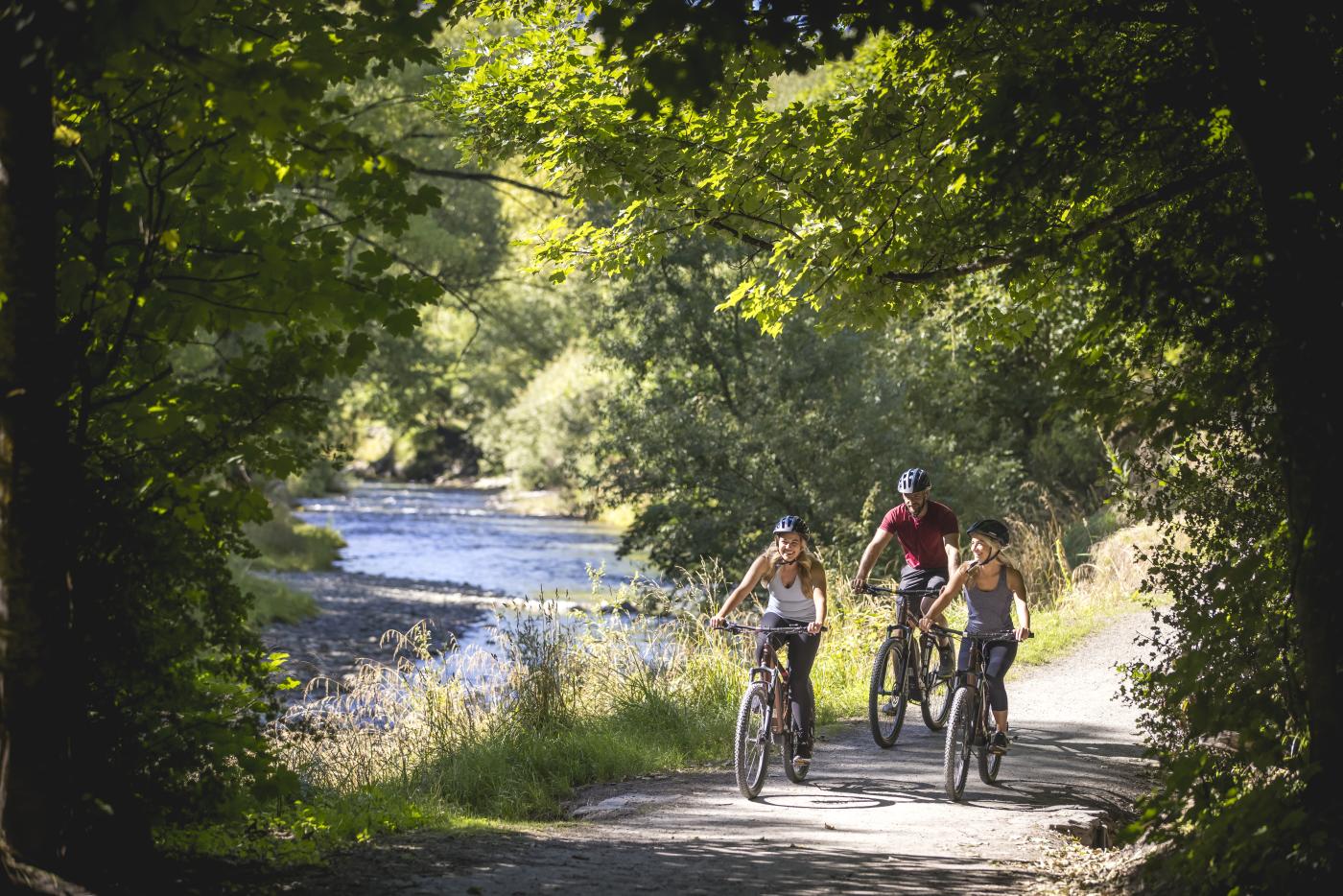
Friends biking alongside the Arrow River, Arrowtown
Stroll the Arrowtown Millennium Walk
The Arrowtown Millennium Walk is a must-do short walk or bike when visiting Arrowtown.
A one hour 4.2km loop along the Arrow River banks or a 10 minute easy stroll the Arrowtown Millennium Walk passes the Criterion Quartz Mining company site, one of the first quartz mines in New Zealand in the 1860s.
The location was also used for "The Gladden Fields" in Lord of the Rings.

